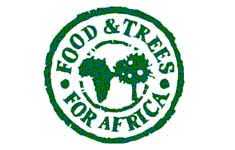Food and trees for Africa
Philippa Garson
14 May 2002Forget 'I believe I can fly'. 'Sustainable development' is the new mantra to gyrate to as the World Summit approaches, and earnest environmentalists and other NGO-types are suddenly far hipper than any aspiring Pop Idols.
Jeunesse Park, CEO of Food and Trees for Africa (FTFA), a dynamic and fast-growing NGO which promotes greening and food security through permaculture, notes with some amusement: “There’s a huge rush of interest in sustainable development and related issues.
“Suddenly people are fascinated by what we do – from all levels of government to the private sector, international NGOs and the general public. Everyone is expressing the desire to plant a tree.”
But Park hasn’t waited around for the limelight to catalyse her into action. What her fast-growing NGO has quietly accomplished these past 12 years could fill several books.
“Everything we do,” she says, “is about sustainable development”.
FTFA, formerly known as Trees for Africa, has three key programmes: Trees for Homes, Eduplant, and the Urban Greening Foundation. A multitude of projects fall under each of these programmes.
All over the country, thanks to the education and support programmes offered by FTFA, hundreds of people – from three-year-olds to school children to the sick and elderly – are hard at work planting, reaping, creating and selling their homegrown or recycled wares.
'A house is not a home without a tree'
Trees for Homes, which espouses the view that “a house is not a home without a tree”, aims to improve the quality of life of the poor by providing plant material, environmental awareness and education for those living in low-cost housing developments.
Although South Africa’s sprawling and dusty townships are a legacy of its apartheid past, the majority of its disadvantaged people continue to live in these poorly designed and impoverished urban and peri-urban housing settlements.
Growing trees and other plants in the townships brightens the environment, prevents soil erosion, and provides wind breaks, as well as food, income and activities for many unemployed people.
FTFA does far more than simply provide plants for greening. It spreads awareness about the importance of greening, and trains volunteers to become community-based educators on greening the environment themselves. They share their knowledge with neighbours, and soon the entire community is involved in the business of gardening.
As part of its urban greening project in Kyalami, FTFA trained numerous volunteers to start their own gardens, and handed over 3 000 trees to 3 000 Kyalami residents on 4 May.
Permaculture
Eduplant is an eight-year-old nationwide project which teaches schools about permaculture – a system of farming and gardening that combines animals, plants, buildings, local
people and the landscape in way that recycles nutrients and waste, replicates nature as much as possible and generates more energy than it uses.
Now hundreds of schools have started their own income-generating organic food gardens. Often the entire community gets involved, with unemployed parents helping out.
Schools have come up with innovative plans to grow food, recycle waste and improve their school environments. Eduplant holds a competition every year for the best school permaculture projects.
Urban greening
The Urban Greening Foundation was established in response to a clamour of requests from local governments and communities to help with urban greening initiatives – from streets to homes to community food gardens.
“We try to build capacity at both community and local government level”, says Park. When the link between these two is strong, the chances of a project becoming sustainable are far greater, she adds.
To make greening a popular pastime, FTFA often creates “green heroes” of prominent people like former President Nelson Mandela, Archbishop Desmond Tutu, and film stars Arnold Schwarzenegger and Whoopie Goldberg, all of whom have been invited to plant trees with communities
The sustainability of the Summit
One such Summit-related activity, FTFA’s tree planting event during
Arbour Week, which will see delegates planting trees along the Jukskei River in Alexandra, will reap rewards for many years to come.
The plan, which is part of the Alexandra Renewal Project’s seven-year greening plan for the township, is to plant trees all the way along the river to Hartebeespoort Dam.
Park is critical of the fact that bureaucracy and the high cost of engagement will prevent many ordinary people from participating in the Summit. “To have a presence there, you need money,” she says.
She also fears that environmental concerns are already being pushed aside by the broader financial interests of governments. “This Summit will be unique if it comes up with more than trade agreements. The environment is now at the bottom of the list of priorities, but in my view it’s the basis of everything.
“Without a healthy environment we won’t have a healthy economy or political stability. The key to sustainable development is giving people capacity to grow
their own food. It’s about natural resource use and management.”
It is more important, she adds, to support the systems that poor people put in place to survive than to “pay consultants huge sums of money to come up with advanced programmes that exist only on paper”.
Park believes the World Summit is a wonderful opportunity for South Africa in general and Johannesburg in particular, whose citizens stand to benefit from the additional infrastructure and all the hype generated around development issues.
 Want to use this article in your publication or on your website?
Want to use this article in your publication or on your website?
See: Using SAinfo material










